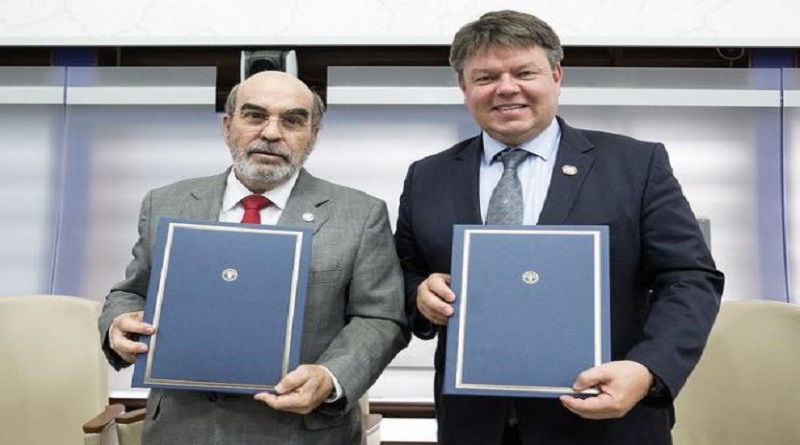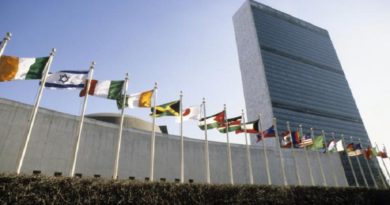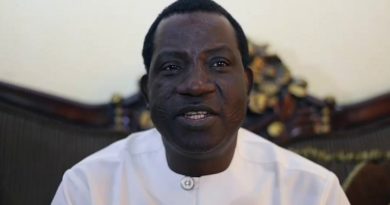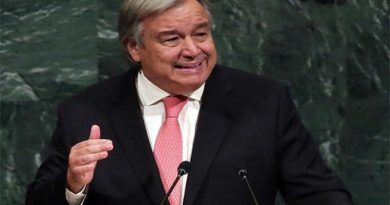UN groups strengthen cooperation on climate change, drought
The United Nation Food and Agriculture Organization (FAO) and the World Meteorological Organization have signed a memorandum of understanding to deepen cooperation to respond to climate variability and climate change, which, according to the agreement, “represents an urgent and potentially irreversible threat to human societies, natural ecosystems and food security.”
Through their strengthened partnership, the two organizations will work on strengthening agro-meteorological services and making them more accessible to farmers and fishers; improve global and region-specific monitoring for early warning and response to high-impact events like droughts.
In addition, they will collaborate on technical cooperation, joint programmes and project development. An example of this is the Adaptation Fund Project that was approved in early 2017 on Agricultural Climate Resilience Enhancement Initiative (ACREI). This project focuses on enhancing weather and climate communications to farmers in Ethiopia, Kenya, and Uganda which also involves the Inter-Governmental Authority on Development (IGAD) in East Africa.
The agreement was signed by FAO Director-General José Graziano da Silva and WMO Secretary-General Petteri Taalas on the sidelines of an international seminar on drought organized by Iran, the Netherlands, and FAO in Rome.
“Saving livelihoods means saving lives – this is what building resilience is all about,” said Mr Graziano da Silva. Recalling the 2011 drought in Somalia that saw over 250,000 people perish from hunger, he said: “People die because they are not prepared to face the impacts of the drought – because their livelihoods are not resilient enough.”
“For years, the focus has been responding to droughts when they happen, rushing to provide emergency assistance and to keep people alive,” Graziano da Silva said, noting that while “of course, that is important,” investing in preparedness and resilience is essential. Doing so puts countries on a footing to act quickly before it is too late, means that farmers and rural communities are better positioned to cope with extreme weather when it does hit.
John Mutorwa, Minister for Agriculture, Water and Forestry of Namibia, said that in these times of climate change, drought has emerged as a challenge that all countries will be forced to face, again and again.
“It is not a question of whether drought will come, it is a question of: Drought will come, and therefore, we have to be prepared,” the Minister said, underscoring the importance of the seminar’s theme, “Predict, Plan, Prepare: Stop Drought becoming Famine.”
“WMO provides guidance and scientific information to strengthen national services responsible for addressing drought risks to agriculture,” said Mr Taalas. “We encourage countries to take early action against drought and to move towards a more proactive approach.”
International Fund for Agriculture Development (IFAD) President Gilbert F. Houngbo in his remarks emphasized the need break the cycle of crisis, disaster and relief and called on the international community to be proactive and to think not just of today’s emergencies, but also of how to prevent tomorrow’s.
“This means investing in smallholder farmers to help them address productivity challenges, give them access to markets and finance and most importantly encourage climate-smart agriculture so that when the drought inevitably comes, they have the tools they need to survive and thrive,” said Houngbo.




